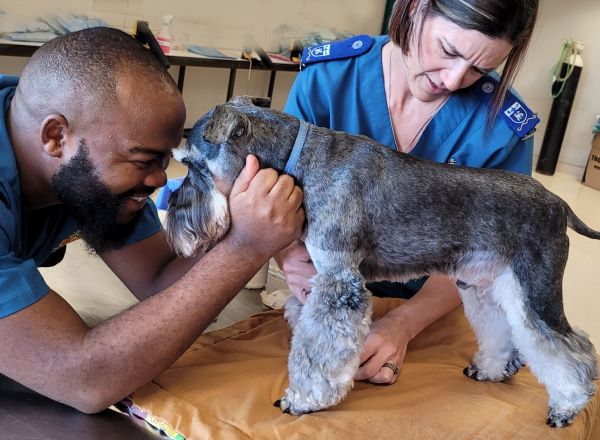The World Small Animal Veterinary Association (WSAVA) has updated its Global Vaccination Guidelines, which set out the latest scientific thinking on the vaccination of dogs and cats globally. The Guidelines have been produced by the WSAVA’s Vaccination Guidelines Group (VGG), and are now available for free download from the WSAVA website, following peer-review by the Journal of Small Animal Practice, the WSAVA’s official scientific journal.
The new version includes a range of updates and additional content including:
- A revised definition of ‘core’ vaccines
- A new section covering maternal antibody (MDA)
- Updated sections on current and emerging topics in canine and feline clinical vaccinology and on the use of vaccines in shelters and sanctuaries.
The VGG has also produced sets of Regional Vaccination Guidelines for veterinarians in Asia and Latin America and is currently undertaking a four-year project to boost understanding of infectious disease across Sub-Saharan Africa and to advise veterinarians on optimal vaccination practice. As part of this project, it will conduct a review of infectious disease prevalence and current vaccination practice in the region and will provide continuing education on vaccination. In 2026, it will publish a full set of Regional Vaccination Guidelines for Sub-Saharan Africa.
Setting global standards for companion animal veterinary care is one of the WSAVA’s key goals. The VGG is a team of experts from around the world, working to provide evidence-based scientific advice to the global veterinary profession on the vaccination of dogs and cats. It comprises Dr Mary Marcondes from Brazil (Chair), Dr Richard Squires (Australia), Dr Cynda Crawford (US) and Dr Nathaniel Whitley (UK).
Commenting on the launch of the new Global Vaccination Guidelines, Dr Marcondes said: “We’re thrilled to announce the publication of the 2024 WSAVA Global Vaccination Guidelines. They are the culmination of several years’ work by the VGG and provide the very latest thinking on vaccination practice for dogs and cats. “We hope that the scientific evidence embedded within the Guidelines will ensure that they are a valuable and practical resource for veterinarians worldwide and that they will contribute to the welfare of companion animals globally.”
She added: “We are very grateful for the support of the VGG’s long-term partner MSD Animal Health, which enables us to carry out our important work.”
Dr David Sutton, Global Technical Director at MSD Animal Health, said: “Evidence-based scientific vaccination guidelines are essential to ensure optimum vaccine practice for dogs and cats. We are proud to support the work of the WSAVA’s Vaccination Guidelines Group and these important new Guidelines which will help prevent the spread of infectious disease and further the wellbeing of small companion animals.”
MSD Animal Health has been the Sole Partner of the VGG since its inception in 2006 and has recently become a Diamond Partner of the WSAVA.
The WSAVA represents more than 200,000 veterinarians worldwide through its 116 member associations and works to enhance standards of clinical care for companion animals. Its core activities include the development of WSAVA Global Guidelines in key areas of veterinary practice, including pain management, nutrition and vaccination, together with lobbying on issues affecting companion animal care worldwide.








